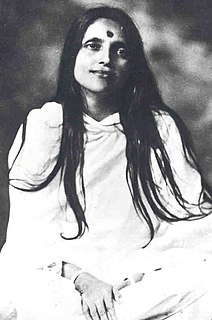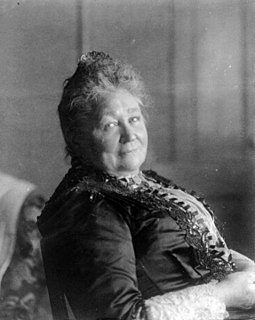A Quote by Chanakya
Poverty, disease, sorrow, imprisonment and other evils are the fruits borne by the tree of one's own sins.
Related Quotes
Enquire: 'Who am I?' and you will find the answer. Look at a tree: from one seed arises a huge tree; from it comes numerous seeds, each one of which in its turn grows into a tree. No two fruits are alike. Yet it is one life that throbs in every particle of the tree. So, it is the same Atman everywhere.
I went from one to the other holding my sorrow - no, not my sorrow but the incomprehensible nature of this our life - for their inspection. Some people go to priests; others to poetry; I to my friends, I to my own heart, I to seek among phrases and fragments something unbroken - I to whom there is no beauty enough in moon or tree; to whom the touch of one person with another is all, yet who cannot grasp even that, who am so imperfect, so weak, so unspeakably lonely.
To put it bluntly and plainly, if Christ is not my Substitute, I still occupy the place of a condemned sinner. If my sins and my guilt are not transferred to Him, if He did not take them upon Himself, then surely they remain with me. If He did not deal with my sins, I must face their consequences. If my penalty was not borne by Him, it still hangs over me. There is no other possibility.
To judge sins is the business of one who is sinless, but who is sinless except God? Who ever thinks about the multitude of his own sins in his heart never wants to make the sins of others a topic of conversation. To judge a man who has gone astray is a sign of pride, and God resists the proud. On the other hand, one who every hour prepares himself to give answer for his own sins will not quickly lift up his head to examine the mistakes of others.
It is harmful to remember previous sins in detail. For if they bring you sorrow, they will estrange you from hope, but if they are remembered without sorrow, they will introduce the previous defilement. If you want to bring to God an uncondemned confession, then don't remember your sins in detail, but manfully endure the suffering that is coming because of them.
But it can also happen, if will and grace are joined, that as I contemplate the tree I am drawn into a relation, and the tree ceases to be an It. . . . Does the tree then have consciousness, similar to our own? I have no experience of that. But thinking that you have brought this off in your own case, must you again divide the indivisible? What I encounter is neither the soul of a tree nor a dryad, but the tree itself.
In every forest, on every farm, in every orchard on earth, it's what's under the ground that creates what's above the ground. That's why placing your attention on the fruits that you have already grown is futile. You cannot change the fruits that are already hanging on the tree. You can, however, change tomorrow's fruits. But to do so, you will have to dig below the ground and strengthen the roots.
































